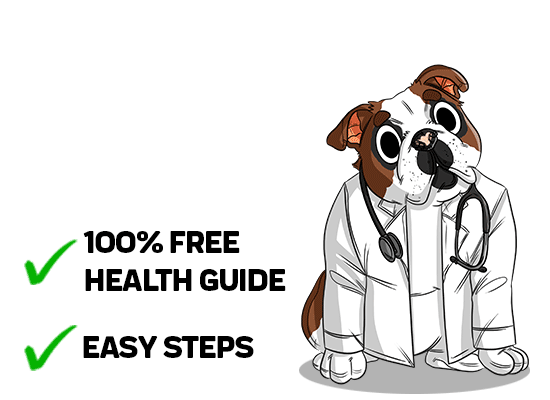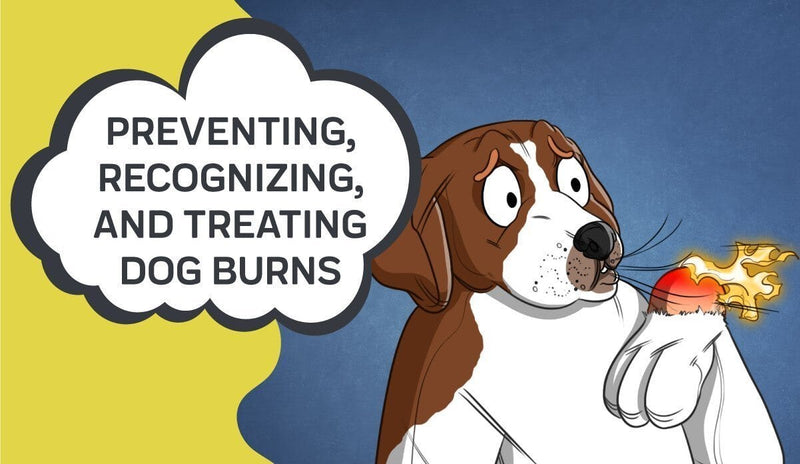- Heart Arrhythmia or Cardiac Arrhythmia: What is it in Dogs?
- Regular Heart Rate in Canines
- Causes of Abnormal Heart Beats
- Arrhythmias Which Aren’t Cardiac Associated
- Arrhythmias Associated with the Heart
- Kinds of Heart Arrhythmias and Conditions Common in Canines
- Arrhythmia Symptoms in Canines
- Diagnosing Cardiac Arrhythmia in Canines
- Arrhythmia Treatment in Canines
- CBD For Heart Arrhythmia in Canines
- CBD Oil for Dogs: What is it?
- What’s the Bottom Line on CBD Oil for Dogs and Cats?
Hearing of heart arrhythmia in dogs for the initial time may scare pretty much any pet owner. Who would not be worried as they learn that there’s something wrong with their dog’s heart? With that being said, things typically seem to become a lot less frightening when we try to understand them. The same thing goes for heart arrhythmia in dogs.
Heart arrhythmias in dogs aren’t always serious or dangerous. However, they certainly can be. For that reason, it’s well worth conducting your research and learning about such a condition. Many a dog’s life has been saved by pet owners who identified and saw the clinical signs of irregular heartbeat in dogs and got them the assistance they required.
Heart Arrhythmia or Cardiac Arrhythmia: What is it in Dogs?
Definition of Arrhythmia
The term “Arrhythmia” is the medical word for an irregular or abnormal heartbeat. If you consider the make-up of the heart, it isn’t merely an organ. It’s an organ that has several parts that each require to properly function to do its job. An arrhythmia is a sign that something, some place is causing the heart to not beat as it ought to.
The heart’s a pump. Its responsibility includes pumping oxygenated blood through the body. There are electrical impulses that are sent to the heart by the nervous system which stimulate the heart’s muscles to repeatedly relax and contract. Blood flows out of and into the heart chambers as the heart relaxes and contracts, and it’ll result in a heart rhythm. A healthy pup is going to have a steady quantity of heartbeats per minute. Arrhythmias may cause those “beats per minute” to go above or below what’s considered healthy. That isn’t good.
Arrhythmias are as typical in young pups as they are in adult dogs. There are specific kinds of arrhythmias that are more common in certain breeds, yet generally, any dog breed can experience them.
Regular Heart Rate in Canines
A regular heart rate is additionally referred to as a resting heart rate. It’s the rate at which a healthy, normal heart is going to beat in a canine who’s in a resting state. An amazingly excited Terrier who has been chasing after a squirrel inside the park is going to have a dog heart rate fast, yet it’ll slow down once again and relax. That’s perfectly normal. As the dog’s heart rate falls outside of the limitations without any reason, that is when things might become a problem.
- Regular Heart Rate of Adults: 70 to 160 beats/minute
- Regular Heart Rate of Giant Dog Breeds: 60 to 140 beats/minute
- Regular Heart Rate of Toy Dog Breeds: As high as 180 beats/minute
- Regular Heart Rate of Pups: As high as 220 beats/minute
The word for a dog's slow heart rate is “bradycardia”. As a dog’s heart beating fast it is “tachycardia”. Lengthier periods of either of those conditions never are a good sign.
Causes of Abnormal Heart Beats
Do dogs have irregular heartbeats? There might be several reasons for a dog's heart rate irregular beats. The heart is simply a pump that is made of muscle. It’ll beat as it receives electrical impulses, which causes it to relax or contract. There are some things that might affect those impulses. Cardiac arrhythmias happen either because the heart is faulty, or due to a non-cardiac-associated factor.
Arrhythmias Which Aren’t Cardiac Associated
Here are some factors that are caused by factors outside the heart:
Electrolytes
Electrolytes inside the blood aid in regulating the functioning of muscles and nerves. As there’s an electrolyte imbalance in a canine’s blood, it may cause the heart to abnormally beat. An electrolyte imbalance is typical in canines that suffer from illnesses like hypothyroidism, Addison’s disease, or kidney disease.
Medications
Imagine how consuming Xanax, or taking in four espresso shots might affect you, as well as your heart rate. It is the same with canines. Specific medications and drugs may speed up or slow down the heart rate of a dog.
Nervous System
Issues with the nervous system often are a cause of arrhythmias in canines. Hardly shocking considering that the heart relaxes or contracts according to the electrical impulses it’ll receive from the nervous system.
Tumor
It may happen that a dog arrhythmia is caused by a tumor affecting the heart’s capability of receiving the impulses that tell it to relax or contract.
Arrhythmias Associated with the Heart
Heart Disease
Such diseases like Cardiomyopathy may cause the heart muscles to become thicker or enlarge. The extra tissue makes it take a longer period of time for the electrical impulses to get to their target. This small delay leads to arrhythmia because the heart begins to beat out of sync. Keep in mind, the heart continuously is pumping out and receiving blood. Therefore, as all parts of the heart are not in sync, it ultimately produces skipped heartbeats. Cardiac diseases that if left to their own devices may lead to congestive heart failure, thereby arrhythmias aren’t to be taken lightly!
Congenital Heart Disease
Tragically, a multitude of pups are born with heart defects like Pulmonic Stenosis (PS) or Subaortic Stenosis (SA). Any defective heart part, whether it is a valve or chamber, is bound to lead to a cardiac arrhythmia.
Kinds of Heart Arrhythmias and Conditions Common in Canines
- Atrial Fibrillation: The condition is very typical in Doberman Pinschers, as well as leads to their hearts beating extremely fast.
- Ventricular Tachycardia
- Supra-ventricular Tachycardia
- Heart Block
- Ventricular Arrhythmias
- Respiratory Sinus Arrhythmia
- Hypertrophic Cardiomyopathy
- Dilated Cardiomyopathy
- Right-sided Heart Failure
- Arrhythmogenic Right Ventricular Cardiomyopathy

Arrhythmia Symptoms in Canines
If you witness any of the clinical signs or symptoms of irregular heartbeat, you must immediately get them to a veterinarian. Certainly, not all arrhythmias are harmful, yet most of them are.
Here, we list the most typical symptoms of dogs having arrhythmias:
- Fainting
- Lethargy: Lack of energy and general weakness
- Shallow or fast breathing
Diagnosing Cardiac Arrhythmia in Canines
Veterinary cardiologists and vets have a variety of tricks up their sleeve that identify an arrhythmia, as well as diagnose its cause.
Stethoscope
It’ll seem like such a fundamental equipment piece, yet it keeps vets informed. They may listen to the heart rate of a dog, diagnosing whether there are any murmurs, as well as listen to whether a dog’s lungs are performing their job.
Blood Tests
A heart arrhythmia may be an indication that a pup is suffering with an associated illness like hypothyroidism or Addison’s disease. The blood tests are going to indicate whether the issue lies with your pup’s heart itself, or whether the issue lies with an unassociated illness.
Chest x-rays
The veterinarian may learn a lot of information from an x-ray of the chest of a dog. They often can see whether a heart is enlarged, or which portion of the heart is leading to problems.
EKG or ECG
An EKG (electrocardiogram) is the most reliable way to assess an arrhythmia. A vet cardiologist will observe the heart rate of a dog for 24 hours to 48 hrs. It’s referred to as “Holter Monitor”. Mere mortals will not learn anything from checking out the EKG; however, it’ll tell a veterinarian any specifics about the arrhythmia and what’s causing it.
Arrhythmia Treatment in Canines
The treatment plan and prognosis for a dog that has arrhythmia entirely depends upon the diagnosis. There are several ways to treat, as well as manage heart arrhythmia, as well as its causes!
Treating underlying heart ailment
Let us say a pup is experiencing a type of arrhythmia because they happen to have Addison’s disease. The veterinarian is going to treat the ailment, typically through the use of medication, and as the aliment is cured, the arrhythmia is going to go away.
Medicine
There’s an array of meds, like beta-blockers, which may assist in regulating the heartbeat of a dog. Medications also can be used in the treatment of heart diseases which are leading to the arrhythmia. If, for instance, the dog has Myocarditis (inflammation of heart muscle), a veterinarian may treat the condition using anti-inflammatory drugs.
Pacemaker
Canines can get pacemakers! They even can receive secondary pace-makers. It is a shockingly common treatment which successfully has saved the lives of multiple dogs. As the heart beat of the dog is too slow, the pacemaker is going to stimulate the heart to get to a steady, healthy rhythm. Pacemaker’s for canines, who would’ve thought?
As bleak as the world sometimes seems, let us not forget the beauty of modern-day medicine! There are many ways to assist dogs with heart problems.
CBD For Heart Arrhythmia in Canines
From eliminating the necessity for anti-anxiety meds to decreasing cancer cell growth to treating adults and children suffering with seizures, CBD is at last, starting to receive the respect it deserves. Cannabidiol for cats and dogs also is making a huge impact in the ways we have the ability to treat our four-legged friends.
But, with a lot of power comes a lot of responsibility. There still are misconceptions that surround the amazing herb which leads some folks to be uncertain about its possibilities. Questions circulate online at a fast speed and leave pet parents confused at what CBD is.
In this section, we’ll shed some light on all the ways CBD will help your pet and leave nothing to the imagination. Therefore, sit down, relax, and let us go over the amazing world of CBD oil for canines.
CBD Oil for Dogs: What is it?
CBD, or Cannabidiol, is a liquid substance that comes from the cannabis plant. Because of the realization that the cannabidiol oil derives from a plant, CBD oil is nontoxic and all natural, which makes it a go-to as far as a medicinal substitute for otherwise harsh traditional medications is concerned. CBD oil for canines is a conversation that’s rapidly growing every day, yet how does it all work?
CBD promotes a healthy heart by:
- Lessening harm from damaged blood vessels
- Decreasing suffering from an irregular heart rate
- Protecting the blood vessels and arteries
- Reducing high blood pressure and heart rate oftentimes resulting from stress and anxiety
Ways to Utilize CBD Oil for Dogs
The easiest and most efficient method of administering CBD oil for dogs is with a dropper that’s included within the tincture package. Pet parents may utilize the dropper to give the CBD oil directly inside their dog's mouth. Many consumers report that their pup has no qualms concerning the CBD oil’s taste. But we know that you may have a picky eater. If that is the case, try to mix the CBD oil inside their food or put it on one of his favorite treats.
Where you can Purchase CBD Oil for Canines
Now, we have some bad news and some good news. With the increasing popularity of Cannabidiol oil for dogs, there are many brands selling the herb. We believe that it’s fantastic because the word is, at last, getting out about how wonderful it is. But, with a lot of power comes a lot of responsibility. Not all Cannabidiol is created equally. There are specific things to be on the lookout for as you are buying CBD oil for your dog. There are several new brands in the market that don’t meet the standards of what CBD offers.
As you purchase CBD oil, make sure that the product is laboratory tested, 100 percent natural, non-GMO, and soy-free. In addition, request a certificate of analysis. Any trustworthy brand easily should have the ability to offer one. Here’s the bottom line: know what you are buying.
At Innovet Pet, we believe that health comes first. Innovet Pet's product line speaks for itself. Our company believes that your pet deserves the best, which is the reason why we’ve sourced the most outstanding, pure CBD oil, as well as all-natural ingredients. Our brand holds itself to the highest manufacturing process standards to ensure your dog gets precisely what he or she deserves.
CBD Oil Dose for Canines
Plus, we have more great news. Research is continuously proving that CBD oil is very safe for not just human use yet for your pets. But specialists still are determining the precise doses of the product. The dosage primarily is determined by the weight and size of the dog. That is why Innovet Pet Products has 3 different levels for pet parents to select from.
Although CBD oil is very safe, we always suggest starting off gradually while offering a new product into your pup's life. The same goes for CBD oil. Believe us, before you know it, your pup is going to be reaping all of the benefits CBD offers. There isn’t any need to hurry the process.
Dog parents may begin with 50% of the suggested dosage and slowly work their way up to the advised quantity. The good thing about CBD oil within tincture form is that pet owners have complete control over precisely how much of the product their pet is getting.
What are the Side Effects of CBD in Dogs and Cats?
CBD’s side effects are pretty much nonexistent. Within some instances, tiredness and lethargy have been reported. But those side effects may quickly be eliminated by just decreasing your pup's dosage.
Although CBD is non-toxic and all natural, it always is best to be safe than sorry, particularly when it comes to your pet. Thereby, we encourage pet owners to keep a close eye on their pet during the introduction phase.
What’s the Bottom Line on CBD Oil for Dogs and Cats?
We know you want what is better for your pup, at the end of the day. Here at Innovet Pet Products, we’re dog owners and pet lovers. Therefore, we know how difficult it may be when issues arise. Even as you do everything possible as a pet parent; you remain updated on the most recent information on wellness, you feed your dog a species suitable raw food diet and ensure that they receive an abundance of physical and mental stimulation, occasionally health problems still are unavoidable.
Luckily, holistic wellness is making excellent strides in permitting us to select how we treat our pets. All-natural medical alternatives are at last, receiving the recognition they deserve, and we could not be happier. Having the ability to have an option of a non-toxic alternative over traditional medicine means we have control of our pet's well-being.
CBD oil for canines is really making a difference within the lives of both animals and humans. Here at Innovet Pet Products, we’re ecstatic that we get to play a small role in delivering positive advancements to our users. Try us out! We’re confident that your favorite four-legged friend is going to thank you.
For more information contact Innovet Pet today!
Sources:
CBD May Support Treating Inflammation
 LEARN MORE
LEARN MORE











 CBD Oil for Dogs
CBD Oil for Dogs Advanced Mobility Support Chews for Dogs
Advanced Mobility Support Chews for Dogs All Natural Oatmeal & Honey Shampoo + Conditioner for Dogs
All Natural Oatmeal & Honey Shampoo + Conditioner for Dogs CBD Dog Treats
CBD Dog Treats


